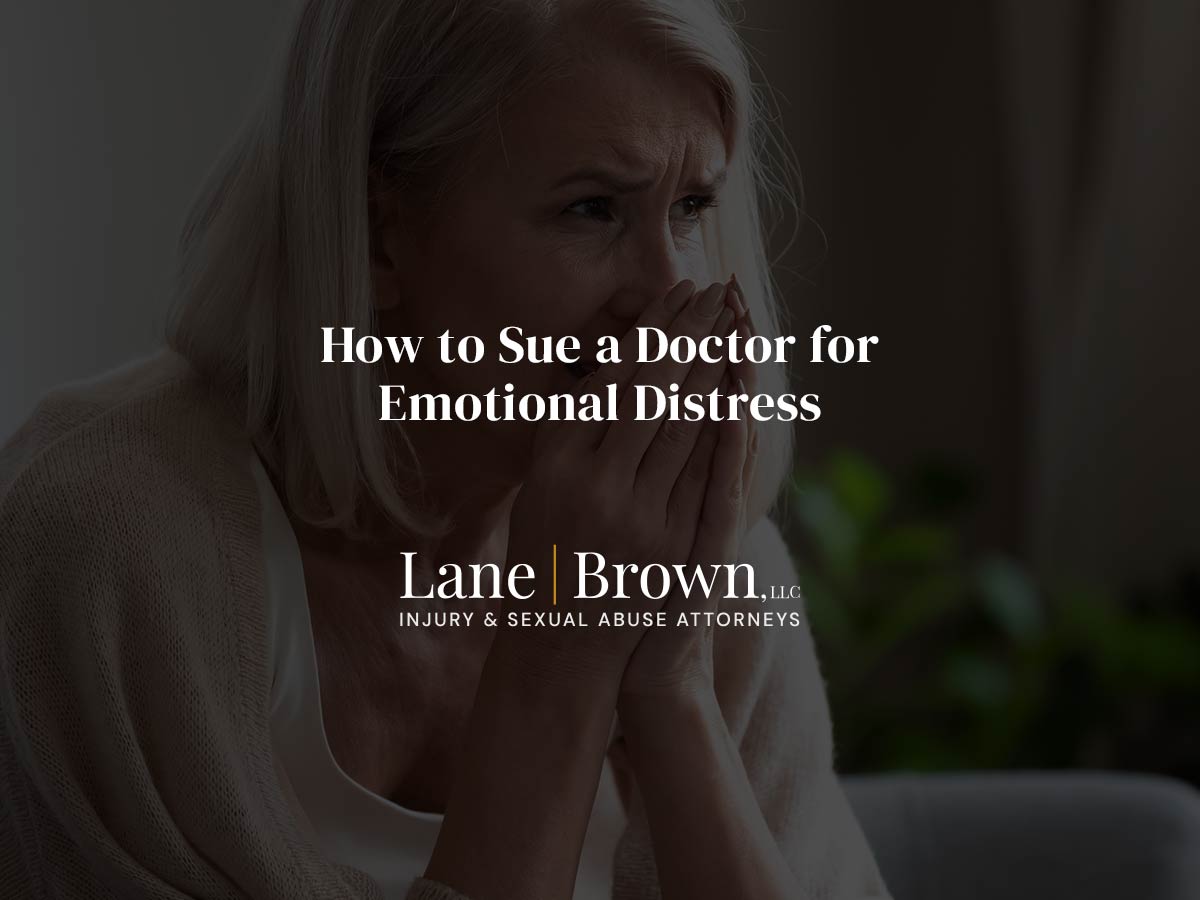When it comes to personal injury cases, most of us think that compensation is limited to physical and financial damages, which are concrete and measurable. But Illinois law allows you to recover damages from doctors for emotional distress that arises because of their negligence.
If you are suffering from emotional distress because of a doctor’s negligence, you may be wondering what you need to do to sue a doctor for emotional distress. You should also know that it’s perfectly reasonable to be contemplating these things because when we bring in patients to doctors for treatment, we put our utmost trust in their skill and professionalism.
When Can You Sue for Emotional Distress?
If you suffer from symptoms like anxiety, irritability, sleepless nights, or memory problems, among others, and these symptoms started after a loved one died or was permanently injured because of a doctor’s negligent treatment, you may have cause to sue for emotional distress.
What Kinds of Emotional Distress Claims Can You Make?
Generally, you can sue for emotional distress in a negligence claim when the doctor’s negligent act also resulted in emotional distress.
You can also sue for emotional distress even if you weren’t the direct victim, but you were in the “zone of danger” when another person suffered the injury, causing you to fear for your own safety.
Emotional distress claims against doctors usually arise out of medical malpractice, so these claims are made part of a personal injury or medical malpractice suit.
What Do You Need to Prove When Suing for Emotional Distress?
Generally, to win in an emotional distress case, you need to prove that you suffered a physical injury caused by the doctor, were directly involved in the incident caused by the doctor, or you were a bystander with a close relationship to the victim who suffered at the hands of the doctor.
Building a case requires going into the different theories of liability, pinning it on the defendant, and proving a causative relationship between the defendant’s negligence and the emotional distress you suffered.
If you were not the one who the doctor directly treated, but it was instead a loved one or a close family member, proving your entitlement to damages may also be complicated.
Finally, after considering all the important factors that come into an emotional distress suit, you must still comply with the statute of limitations in Illinois. For personal injury cases, Illinois law provides a period of two years within which you must file your claim.
Learn How an Attorney Can Help
At Lane Brown, LLC, our medical malpractice lawyers know that the consequences of malpractice extend not only to the patient but also to their loved ones. When a doctor’s negligent conduct results in making the patient’s condition worse or leads to his death, the effects cascade to those who were close to the victim.
There should be no reason for you to suffer needlessly because of someone’s negligence. Call us now at 312-332-1400 or fill out the form below for a free consultation with an attorney!

